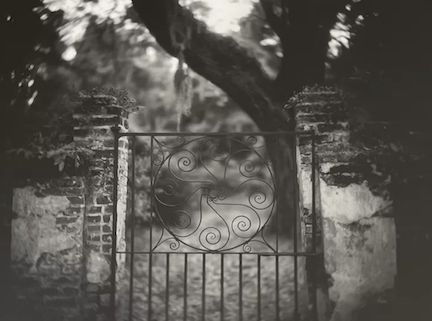If only I knew
Imagine yourself as a successful worker thriving in a large accounting firm. You are only fifty years old and still have many things you want to achieve and experience for the rest of your life, including an exciting retirement plan.
But one day, the doctor tells you that you have an inoperable brain cancer and are given only 100 days to live.
For a man named Eugene O’Kelly,* what you just imagined was a reality in his life.
His life story is told in his book titled Chasing Daylight.
On May 24, 2005, Eugene received the devastating news that shattered his life plans.
Upon learning the seriousness of his illness, he did what he was trained to do as an accountant – he made a list:
- Resign from my job.
- Choose medical treatments that allow me to...
- Make the most of the remaining time for those most affected by my condition.
Eugene even made a to-do list for his final days:
- Settle legal and financial matters
- Open up relationships,
- Simplify
- Live for today
- Create joyful moments
- Begin transitioning to the next phase
- Plan the funeral
- Stay positive until the end.

In Scripture, there was a King of Israel who also experienced a similar situation. He knew exactly how long he had left to live in this world. In 2 Kings 20:1-11 we read that King Hezekiah became gravely ill (verse 1), but when he prayed to God, asking for His mercy, God extended hiss life by 15 years (verse 6).
But King Hezekiah didn't initially take full advantage of the remaining time granted to him. In 2 Chronicles 32:24-33 we read that He was first overtaken by pride (verse 25), derailing him from productive and positive use of his remaining time.
*Eugene O'Kelly was a former Chairman and CEO of KPMG, one of the largest U. S. accounting and consulting firms and one of the Big Four auditors. Eugene was elected chairman and CEO of KPMG in 2002 for a term of six years. In May 2005, at age 53, Eugene was diagnosed with a terminal brain tumor.
Fortunately, Hezekiah soon turned away from his pride and began doing good for Israel, making good use of the remaining years of his life. He started by building storehouses (verses 27-28), establishing new cities (verse 29), and constructing water reservoirs for the land of Israel (verse 30).
For most of us, it's is true that we will never know when our end will come. But one thing we can definitively know ... One thing we should know is that we will not be here in this world forever.
Our lives are finite.
May I invite all of us today to imagine the experience of Eugene, who had only 100 days left to live, Just imagine, what you do with those remaining 100 days in your daily life.
Make a list, set priorities. Then live that list out, over and over again, until you actually come to the end of your days. Don't be a Hezekiah, wasting even a single moment of your time. Be a Eugene! And like Eugene, remember to "Stay positive until the end!"
And may we pray with Moses, Psalm 90:12, “Teach us to number our days, that we may gain a heart of wisdom.”
She Took Their Sting
CBS News reports:
Firefighters responded to a call about a bee attack after a mother and her two children were swarmed and attacked by bees while doing a family photo shoot, Arizona Fire & Medical Authority said in a statement on Facebook.
Fire officials said the mother's "quick thinking" saved her kids from being stung when she put them in the car as she took the brunt of the stings.
"She was transported to the hospital with over 75 stings but thankfully has recovered," fire officials said.

A mother's love is fierce, willing to take all the pain, all the trauma, and even the threat of death to protect the children she loves.
How much more fierce is the love of the Savior, taking all the pain, all the trauma, and not just the threat of death, but death itself to protect His children from eternal eternal separation from God?
“Where, O death, is your victory? Where, O death, is your sting?” (1 Corinthians 15:55, NIV).
“He himself bore our sins” in his body on the cross, so that we might die to sins and live for righteousness; “by his wounds you have been healed.” (1 Peter 2:24, NIV).
A Door in the Graveyard
In 1943, Etta Shuber wrote the book PARIS UNDERGROUND, in which she talks about being trapped inside Paris when Hitler's storm troopers entered in the Spring of 1940. The Germans quickly shut down the country, guarded the borders, and refused to let anyone leave.
However, a small border town saw its population diminishing rapidly.
The Nazis found that the town cemetery straddled the border, and that the locals had opened up an ancient gate in the rear of the graveyard wall. Every time mourners entered the cemetery for a funeral, they kept right on walking out the back gate, emerging into the land of freedom and life.

When Jesus died on the cross, He bore the burden and paid the cost of our sins. When He rose from the grave, He blew out a door in the back of the cemetery.
As believers, though we may be sojourners here in the land of the dead; we don't linger. We keep right on walking through that valley of the shadow of death until we emerge into the land of the eternally living and forever free.
"Truly, truly, I say to you, whoever hears my word and believes him who sent me has eternal life. He does not come into judgment, but has passed from death to life" (John 5:24, ESV).
"And this is the promise that he made to us—eternal life" (1 John 2:25, ESV).